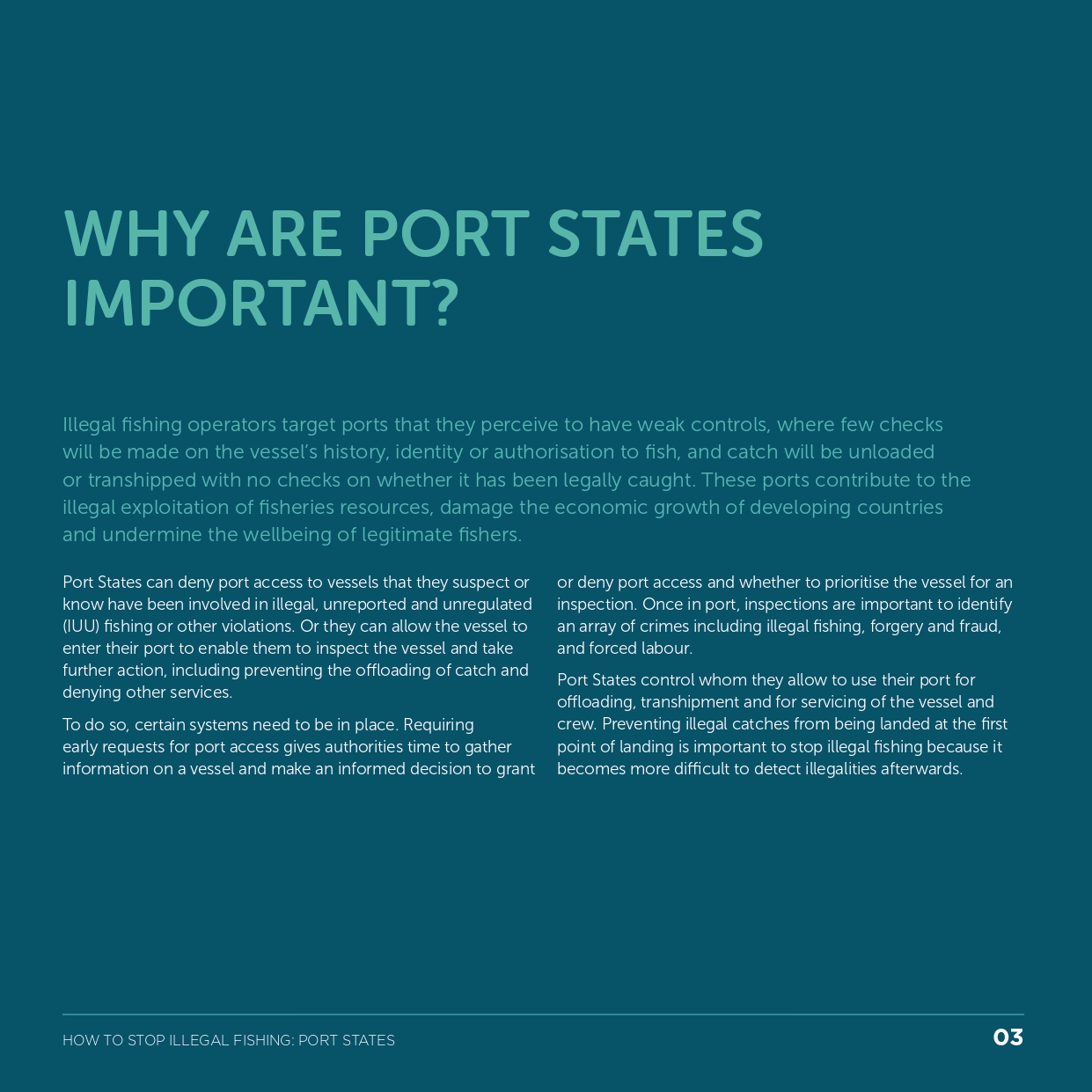How to Stop Illegal Fishing
Port States
Illegal fishing operators target ports that they perceive to have weak controls, where few checks will be made on the vessel’s history, identity or authorisation to fish, and catch will be unloaded or transhipped with no checks on whether it has been legally caught. These ports contribute to the illegal exploitation of fisheries resources, damage the economic growth of developing countries and undermine the wellbeing of legitimate fishers.
Port States can deny port access to vessels that they suspect or know have been involved in illegal, unreported and unregulated (IUU) fishing or other violations. Or they can allow the vessel to enter their port to enable them to inspect the vessel and take further action, including preventing the offloading of catch and denying other services.
To do so, certain systems need to be in place. Requiring early requests for port access gives authorities time to gather information on a vessel and make an informed decision to grant or deny port access and whether to prioritise the vessel for an inspection. Once in port, inspections are important to identify an array of crimes including illegal fishing, forgery and fraud, and forced labour.
Port States control whom they allow to use their port for offloading, transhipment and for servicing of the vessel and crew. Preventing illegal catches from being landed at the first point of landing is important to stop illegal fishing because it becomes more difficult to detect illegalities afterwards.

Key recommendations:
- Become party to and implement the Port State Measures Agreement.
- Designate ports for use by foreign flagged vessels.
- Require IMO numbers and use of AIS for all vessels using port.
- Staff ports with competent and confident inspectors.
- Require all fishing vessels to provide an advance request for entry into port.
- Set up multi-agency risk assessment procedures to identify high-risk vessels.
- Deny access to vessels known to be involved in IUU fishing or allow entry for inspection.
- Conduct inspections on vessels suspected of IUU fishing and random checks on all vessels.
- Share information with neighbouring port States.
- Work with national agencies to share information and take joint action.
- Build links and information sharing channels to flag, market and coastal States.
- Make information public to increase transparency and oversight.
How to Stop Illegal Fishing’ series
The ‘How to Stop Illegal Fishing’ series aims to improve awareness and understanding of the roles and responsibilities of different actors in stopping illegal fishing. As with all of SIF publications, it targets the needs of African fisheries and countries, is based on evidence and analysis, and places legality in the fisheries sector as an essential element of sustainable development.
Credits
Publishing of this pamphlet has been supported by the Deutsche Gesellschaft für Internationale Zusammenarbeit (GIZ) on behalf of The German Federal Ministry for Economic Cooperation and Development (BMZ), through the Port State Measures to Stop Illegal Fishing (PSM-SIF) project.